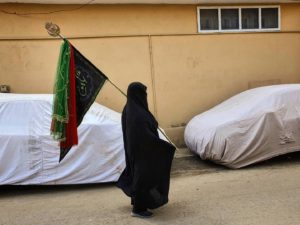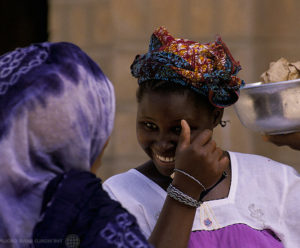Over twenty activists and feminists from Egypt, Iraq, Myanmar, Nigeria and Pakistan recently gathered at a workshop organised by the Coalition for Religious Equality and Inclusive Development (CREID) in which they explored the intersecting inequalities of women from marginalised religious groups on which participants brought their own experiences, insights and strategies for survival.
Women from non-majority faiths and minority ethnic groups often experience multiple levels of discrimination as a result of intersecting inequalities, and this can be exacerbated by fragility, violence and conflict.
Participants at the workshop shared the challenging often unreported situation for women from non-majority faiths from the countries they came from: girls abducted and raped, and being forced to convert and to marry those who have abducted them; mob lynching of people who are from minority groups; school curricula and recruitment policies being openly discriminatory against non-majority faiths (for example, in Pakistan menial work is often explicitly reserved for non-majority faith, especially Christians); and poor women unable to find work as a result of discrimination and turning to sex work for survival. Women can be both stigmatised and marginalised by their own communities as well as by those of the majority-faith community.
Their vulnerability can be heightened in conflict, where, for example, women might not be able to leave their homes without being accompanied by a man. Women who were abducted, subjected to sexual slavery and subsequently had children as a result, face deeply traumatic prospects.
For Yazidi women in Iraq, for example, their religion proscribes them from giving birth to children who have not been fathered by a Yazidi. This means that they cannot keep any children born as a result of rape and assault by non-Yazidi men, and are required to find a Muslim mother for them, which significantly adds to the trauma they have already experienced. There is little or no recognition of the crimes that they and other minority women (such as Christians or Turkmen Shia) have experienced under Daesh rule, and women who’ve been displaced by conflict may have lost their papers, their homes, and their families.
So why have these women been overlooked by feminists, women’s social movements or those working in development?
Women’s movements are often fragmented, growing around a particular ethnic or religious group, or a particular issue or a specific set of experiences. It is hard for women themselves to mobilise when they are poor and disenfranchised, and their specific marginality and social stigma renders them in many ways “invisible” to external actors who might otherwise support them.
One of the ambitions of the workshop was to analyse and understand potential commonalities across our different focus countries which we hope will provide an insight into how to build bridges across women’s movements.
One participant said “I gained so much inspiring knowledge from several countries”, adding that “we in Myanmar [have a] very sad story about citizenship difficulties and I would like to share this perspective.”
Another said “This workshop gave me a hope that there were people who still care for humanity and human rights. …many participants, even from Pakistan, in the workshop were of different beliefs but the way they listened to me, [understood] me and supported me [which] was very encouraging.” He added “It was very informative to hear the real stories for different marginalized groups.”
This workshop was the beginning of a collaboration which will culminate in a series of papers and events which document and share these experiences, highlighting the particular pinch-points faced by women from non-majority faith groups, and opportunities for building solidarity and empowerment among these women.
Subscribe to our CREID newsletter to stay updated and hear about our other areas of research.


